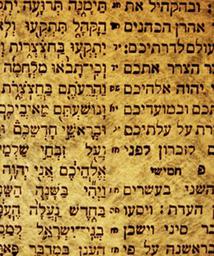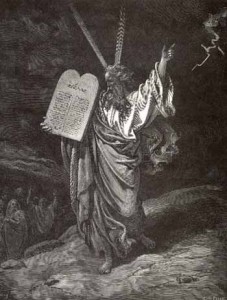The first SBL that I attended was in San Diego (2007). I had just been introduced to N.T. Wright and I was ready to have every theological and methodological assumption challenged. When I arrived in San Diego I overheard a conversation about a debate between N.T. Wright and one of his former student (I now know this was John Barclay) regarding Paul and Empire. I couldn’t wait! I arrived at the massive meeting room more than an hour before the debate was to start. (Actually, I had time to eat my lunch before anyone else even arrived.)
As the debate was approaching I just knew that N.T. Wright was going to trounce Dr. Barclay. Well, that didn’t happen. Wright decided that he wouldn’t even engage in Barclay’s argument and instead chose to give a speech. Barclay, gave a clever and engaging speech as well which thoroughly convinced me that Paul proclaimed Jesus as the Lord of the world and while his words may be interpreted as anti-empire the reality of this polemic was as real as the claim that emperor’s new clothes were really there.
Thankfully, my favorite professor did his second Phd on Paul and polemics so he helped me see (by letting me read his dissertation) that a stark dichotomy was not necessary like Prof. Barclay was insisting on. Flash forward now to this years SBL, I am in a session on intertextuality and Dr. Fredrick Long makes an extremely compelling case for ο θεος του αιωνος τουτου referring to Caesar. I will do my best to reconstruct his argument from my notes and his handout. (As of yet I haven’t receive his paper.)
The basic claim of the paper was that we have missed the imagery that the Apostle Paul has been using in 2Corinthians ― the imagery of the triumphal procession (2:14). He claims that much of what Paul says is imagery from this process (and the mystery cult tied to it). He links 30 motifs overall but I will give you the strongest links:
1) 2:15 “among those who are being saved and among those who are perishing” ― many captives died when they arrived at Rome but many times the enemy became Roman.
2) 3:2 “You yourselves are our letter” ― before a general could get a triumph he would write a letter to the city asking permission.
3) 3:3 “You are a letter of Christ” ― paralleled with (with Deissmann) the Imperial letter that would be sent to cities requesting support and then engraved and posted for all to see.
4) 3:18 “Seeing the glory of the Lord as though reflected in a mirror” ― the devotees of Isis wore mirrors in the procession to show respect to the goddesses following them.
5) 4:1 “since it is by God’s mercy” (καθως ηλεηθημεν) ― starting with Julius, pardoning was an imperial strategy with the enemy.
The parallel that Dr. Long wants to tease out is that Paul is claiming that he, and those with him, are being led around in procession. He is in bad shape (in regards to his suffering) but he is the prize possessions of the victorious κυριος i.e., if he (the persecutor of the κυριος) could be given mercy, then so could they! But, if they do not have a change of heart and welcome him as the representative of the κυριος then they would be counted as enemies. This is why Paul brings up Moses and the wilderness generation. They two were being led around in procession in the wilderness since they had just defeated Egypt and YHWH wanted procession in his land. They did not trust him; Israel had yet to recover from this. This is why later Paul will proclaim, “Make room for us,” the exact proclamation of those leading the procession.
I am not sure what to make of this view. As soon as I become more familiar with the source material I will be able to make a better judgment. As for now, I have a really tough decision to make when I write my paper.







 Apparently, God’s love is so important that to talk of Jesus’ father blinding people so that they won’t see bordered on heresy. It is like everyone gladly acknowledges, in theory, God’s hatred of things (or people) yet we must never speak of it; It’s there but never comes into play — like the dark side of the moon. This hermeneutical insistence among Christians (that I know either personally or through forms of media) has always puzzled me.(I can’t think of a way that deliverance can be accomplished apart form judgment.) But, since I do not share the need to expunge hatred from God I will present the case for YHWH (or Jesus’ Father) as being the referent for this phrase. (Please note: I am not saying YHWH has to be the referent but, he could be the referent.)
Apparently, God’s love is so important that to talk of Jesus’ father blinding people so that they won’t see bordered on heresy. It is like everyone gladly acknowledges, in theory, God’s hatred of things (or people) yet we must never speak of it; It’s there but never comes into play — like the dark side of the moon. This hermeneutical insistence among Christians (that I know either personally or through forms of media) has always puzzled me.(I can’t think of a way that deliverance can be accomplished apart form judgment.) But, since I do not share the need to expunge hatred from God I will present the case for YHWH (or Jesus’ Father) as being the referent for this phrase. (Please note: I am not saying YHWH has to be the referent but, he could be the referent.)

